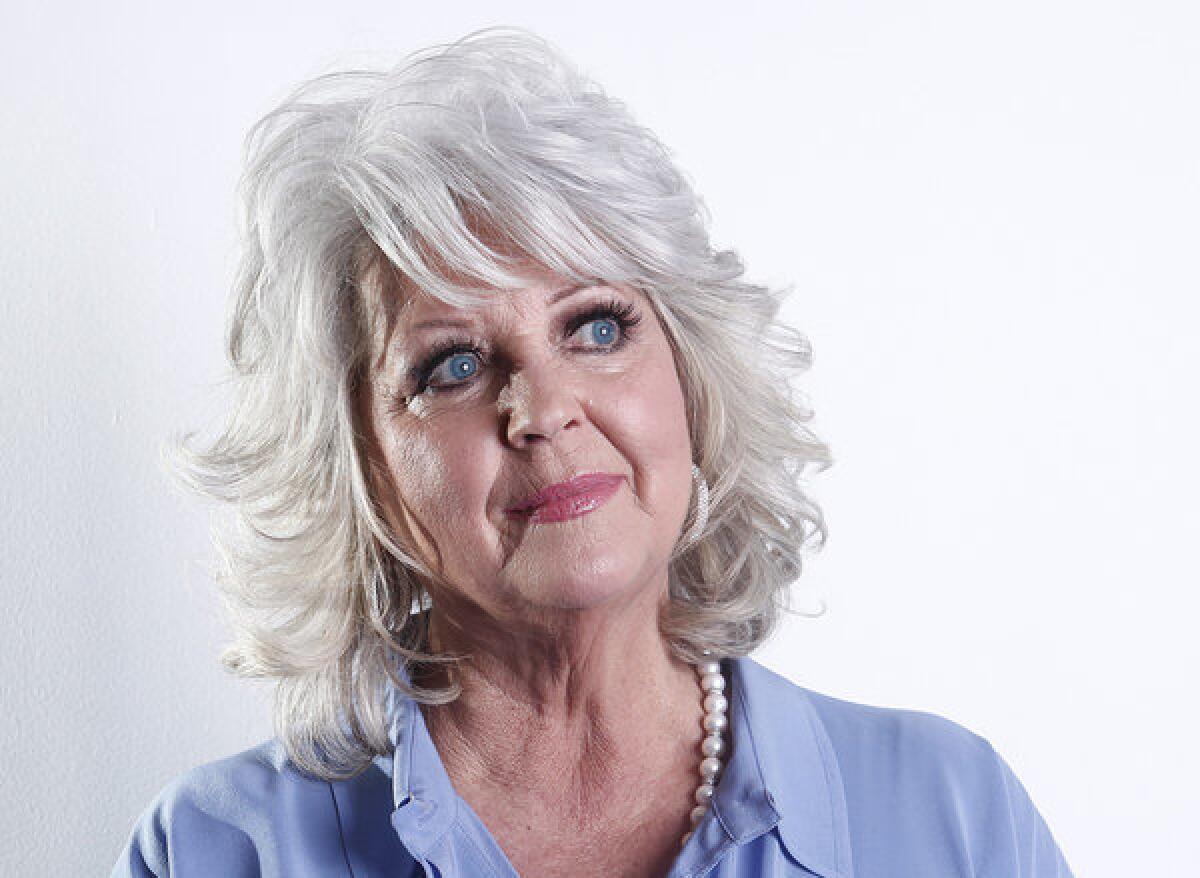Paula Deen isn’t off the hook for her food or behavior

It’s true that a federal judge on Tuesday tossed out the racial discrimination claims against Paula Deen in a lawsuit brought by a former restaurant employee.
Does this mean that Deen has been unfairly maligned as a racist and that she will emerge from the harsh fog of judgment that has surrounded her, retaking her place in the sun as television’s Queen of Butter and sought-after endorser of many cuisine-related products?
Doubtful.
U.S. District Court Judge William T. Moore, after all, did not rule on allegations by the former employee, Lisa Jackson, that Deen and her business partner brother, Earl “Bubba” Hiers, created or condoned a nightmare of an environment at their Savannah, Ga., restaurant. He did not take a position on whether, as Jackson claimed, black employees were subjected to a demeaning treatment and racist insults.
Instead, he ruled that Jackson, a former general manager Uncle Bubba’s Seafood and Oyster House, did not have the legal right to bring such claims under Title VII of the Civil Rights Act. Given that Jackson is white, the judge wrote, she is “at best … an accidental victim of the alleged racial discrimination.”
In her suit, Jackson, who worked for Deen and Hiers for five years starting in 2005, said she was subjected to “racially discriminatory conduct every single day she came to work” and that she suffered “from having to experience the racially discriminatory humiliation of her African American staff.”
Moore said the right to have “harmonious working relationships” with her African American subordinates and her “right to work free from racial harassment” are not the purpose of the portion of the Civil Rights Act she tried to invoke. The law, he said, is not meant to help remedy racial discrimination “directed at third parties.”
(There are exceptions, the judge noted, if there is actual discrimination against a white employee, as in a 1986 case where a white employee was able to sue an employer for racial discrimination after the employer refused to hire the man because he was in an interracial marriage.)
But Jackson, said the judge, was simply not entitled to claim she’d been a victim of racial discrimination.
“Even setting aside the absurd results that could follow from allowing such a claim,” he wrote in an opinion filed Monday, “to use Title VII in this manner would serve to conscript federal courts as human resource departments that are responsible for imposing and monitoring a federally created standard for harmony in the workplace. Quite simply, workplace harmony is not an interest sought to be protected by Title VII.”
In a statement, Deen’s publicist Elana Weiss said “As Ms. Deen has stated before, she is confident that those who truly know how she lives her life know that she believes in equal opportunity, kindness and fairness for everyone.”
Still, the considerable damage to Deen’s reputation will not be undone any time soon. In her deposition for the Jackson case, she spoke of using the n-word and said she was not sure whether jokes containing that would be hurtful.
“That’s kind of hard,” she said. “Most jokes are about Jewish people, rednecks, black folks. Most jokes target — I don’t know. I didn’t make up the jokes, I just don’t know.
“They usually target, though, a group. Gays or straights, black, redneck, you know … I just don’t know what to say. I can’t, myself, determine what offends another person.”
It wasn’t such a stretch, after reading that, to imagine that the things Jackson alleged in her lawsuit were not entirely out of character.
She said Deen fantasized out loud about dressing black waiters up as slaves for her brother’s 2007 wedding reception.
She claimed that Uncle Bubba’s black employees were not allowed to use the front entrance and were not allowed to use the customer restroom, a restriction that did not apply to white employees.
She alleged that Deen’s brother, Hiers, frequently used the n-word and other racially derogatory words, and once said to his African American driver/security guard, “Don’t you wish you could rub off all the black and be like me?”
Deen and her brother said the allegations were “scurrilous and false.”
Still, the Food Network decided not to renew her contract. Sponsors such Sears, J.C. Penney and Walmart deserted her in droves, fearing such an association would tarnish their brands.
Deen’s self-pitying statements in the aftermath — urging people during a “Today Show” appearance to kill her by throwing stones if she was lying about not being a racist — simply made a bad situation much, much worse.
And her legal woes are not yet over.
The judge did not throw out the sexual harassment portion of Jackson’s lawsuit, which focuses mostly on allegations against Deen’s brother, who is accused of harassing Jackson almost daily for five years and running the business like a “boys’ club.”
Jackson said Hiers frequently viewed pornography at work and tried to make her watch with him. She said he told her the gory details about his visits to strip clubs and asked her to bring him photographs of herself when she was younger. She said he told misogynistic sexual jokes, commented on waitresses being overweight and spoke of replacing them with Hooter’s girls.
Of course, the courts will decide what constitutes illegal harassment and what constitutes simple boorishness.
But Paula Deen’s days as a culinary celebrity are as passe as her artery-clogging recipes.
ALSO:
Sex offender ‘person of interest’ in federal investigator’s death
Two believed dead after plane crash, fire in Northern California
Hannah Anderson: Teen may be fielding online questions about ordeal
Twitter: @robinabcarian
More to Read
Sign up for Essential California
The most important California stories and recommendations in your inbox every morning.
You may occasionally receive promotional content from the Los Angeles Times.











